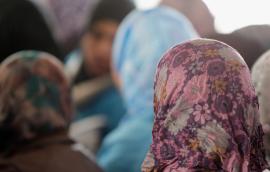Seven Takeaways From the March 4 Texas Primaries
Political science fellow Mark Jones offers insight to the March 4 Texas primaries.
Mark P. Jones March 5, 2014


By Rehman Bhalesha
Jury nullification — when a jury disagrees with the law and acquits a defendant they believe to be…

By Gilbert G. Garcia
Jury nullification — when a jury disagrees with the law and acquits a defendant they believe to be…


Jury nullification — when a jury disagrees with the law and acquits a defendant they believe to be guilty — has a long…

By Clay S. Conrad
Jury nullification — when a jury disagrees with the law and acquits a defendant they believe to be…



